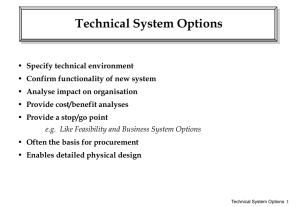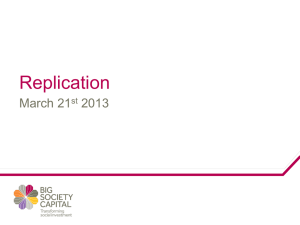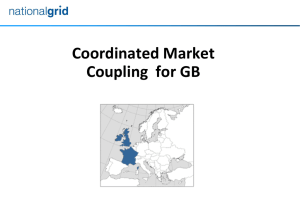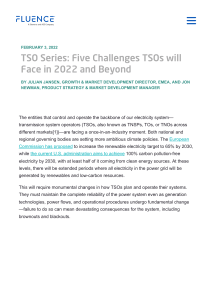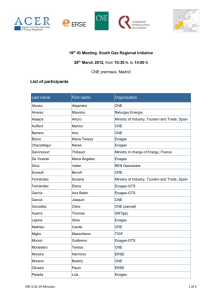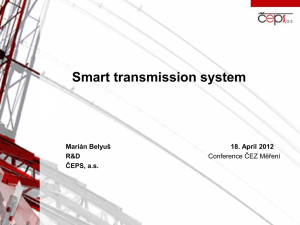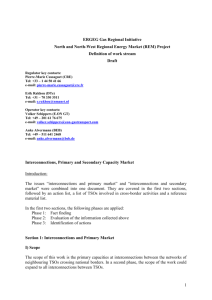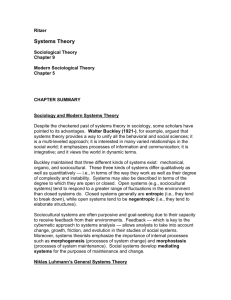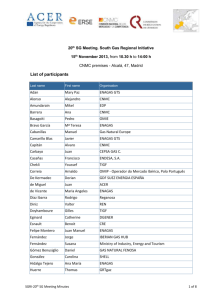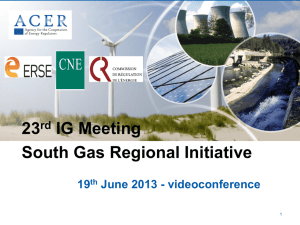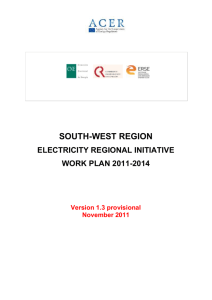Third sector organisations in hypercomplex societies: a systems
advertisement
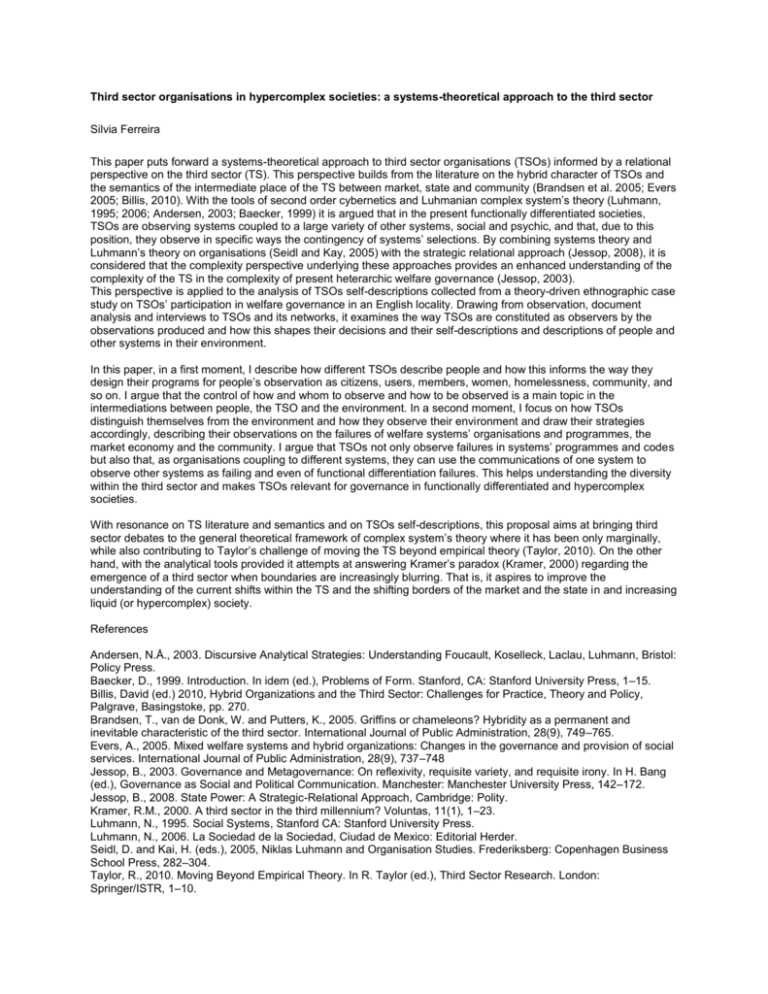
Third sector organisations in hypercomplex societies: a systems-theoretical approach to the third sector Silvia Ferreira This paper puts forward a systems-theoretical approach to third sector organisations (TSOs) informed by a relational perspective on the third sector (TS). This perspective builds from the literature on the hybrid character of TSOs and the semantics of the intermediate place of the TS between market, state and community (Brandsen et al. 2005; Evers 2005; Billis, 2010). With the tools of second order cybernetics and Luhmanian complex system’s theory (Luhmann, 1995; 2006; Andersen, 2003; Baecker, 1999) it is argued that in the present functionally differentiated societies, TSOs are observing systems coupled to a large variety of other systems, social and psychic, and that, due to this position, they observe in specific ways the contingency of systems’ selections. By combining systems theory and Luhmann’s theory on organisations (Seidl and Kay, 2005) with the strategic relational approach (Jessop, 2008), it is considered that the complexity perspective underlying these approaches provides an enhanced understanding of the complexity of the TS in the complexity of present heterarchic welfare governance (Jessop, 2003). This perspective is applied to the analysis of TSOs self-descriptions collected from a theory-driven ethnographic case study on TSOs’ participation in welfare governance in an English locality. Drawing from observation, document analysis and interviews to TSOs and its networks, it examines the way TSOs are constituted as observers by the observations produced and how this shapes their decisions and their self-descriptions and descriptions of people and other systems in their environment. In this paper, in a first moment, I describe how different TSOs describe people and how this informs the way they design their programs for people’s observation as citizens, users, members, women, homelessness, community, and so on. I argue that the control of how and whom to observe and how to be observed is a main topic in the intermediations between people, the TSO and the environment. In a second moment, I focus on how TSOs distinguish themselves from the environment and how they observe their environment and draw their strategies accordingly, describing their observations on the failures of welfare systems’ organisations and programmes, the market economy and the community. I argue that TSOs not only observe failures in systems’ programmes and codes but also that, as organisations coupling to different systems, they can use the communications of one system to observe other systems as failing and even of functional differentiation failures. This helps understanding the diversity within the third sector and makes TSOs relevant for governance in functionally differentiated and hypercomplex societies. With resonance on TS literature and semantics and on TSOs self-descriptions, this proposal aims at bringing third sector debates to the general theoretical framework of complex system’s theory where it has been only marginally, while also contributing to Taylor’s challenge of moving the TS beyond empirical theory (Taylor, 2010). On the other hand, with the analytical tools provided it attempts at answering Kramer’s paradox (Kramer, 2000) regarding the emergence of a third sector when boundaries are increasingly blurring. That is, it aspires to improve the understanding of the current shifts within the TS and the shifting borders of the market and the state in and increasing liquid (or hypercomplex) society. References Andersen, N.Å., 2003. Discursive Analytical Strategies: Understanding Foucault, Koselleck, Laclau, Luhmann, Bristol: Policy Press. Baecker, D., 1999. Introduction. In idem (ed.), Problems of Form. Stanford, CA: Stanford University Press, 1–15. Billis, David (ed.) 2010, Hybrid Organizations and the Third Sector: Challenges for Practice, Theory and Policy, Palgrave, Basingstoke, pp. 270. Brandsen, T., van de Donk, W. and Putters, K., 2005. Griffins or chameleons? Hybridity as a permanent and inevitable characteristic of the third sector. International Journal of Public Administration, 28(9), 749–765. Evers, A., 2005. Mixed welfare systems and hybrid organizations: Changes in the governance and provision of social services. International Journal of Public Administration, 28(9), 737–748 Jessop, B., 2003. Governance and Metagovernance: On reflexivity, requisite variety, and requisite irony. In H. Bang (ed.), Governance as Social and Political Communication. Manchester: Manchester University Press, 142–172. Jessop, B., 2008. State Power: A Strategic-Relational Approach, Cambridge: Polity. Kramer, R.M., 2000. A third sector in the third millennium? Voluntas, 11(1), 1–23. Luhmann, N., 1995. Social Systems, Stanford CA: Stanford University Press. Luhmann, N., 2006. La Sociedad de la Sociedad, Ciudad de Mexico: Editorial Herder. Seidl, D. and Kai, H. (eds.), 2005, Niklas Luhmann and Organisation Studies. Frederiksberg: Copenhagen Business School Press, 282–304. Taylor, R., 2010. Moving Beyond Empirical Theory. In R. Taylor (ed.), Third Sector Research. London: Springer/ISTR, 1–10.
